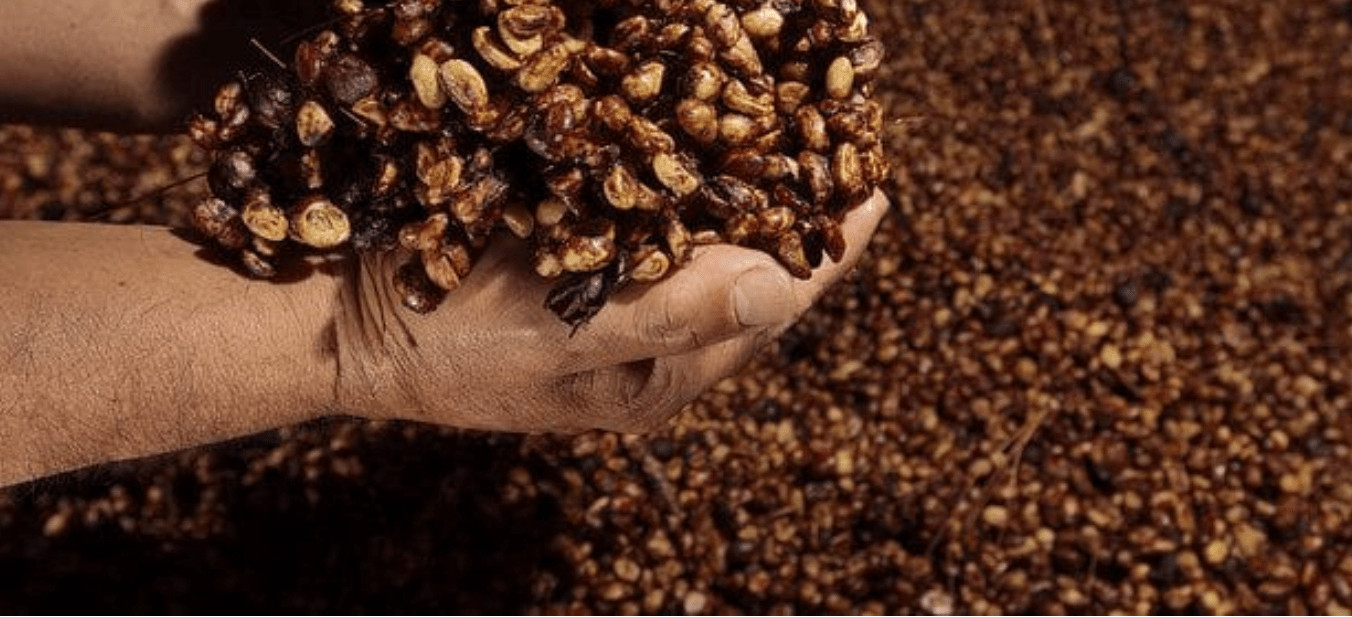What does honey have to do with it?
Whether you’re a fully-fledged coffee geek or new to specialty coffee world, you may have noticed that some coffees are marked as ‘honey’. And for many, it can be somewhat confusing to associate the syrupy golden liquid with a freshly brewed cup of caffeine.
So what do honey and coffee have to do with each other? Have the beans in your bag had honey added to them? Will it be used to describe the taste? Or is your barista flirting with you by recommending an exclusive ‘honey’ just for you?
The answer to all of the above is no (except for the last one. We’ll let you be the judge of that). ‘Honey’ actually refers to the way coffee beans are processed. And if you love a lively, well-rounded brew with fruity notes and a long finish, then honey-processed coffee is definitely worth getting to know.
So whether you’re a true coffee pioneer in search of the perfect cup, or just a confused coffee drinker who hears Tina Turner and wonders about “what’s honey got to do with it?”, look no further: here’s why honey`s are hyped.

Honey processing 101
Fun fact: Coffee is actually a fruit.
And to get the seeds (beans) that we all know and love ready for export, the coffee berries must be ‘processed’ and their pulp must be removed.
The three main ways to process coffee are washed, natural and honey.
During washed processing, the coffee beans are completely cleaned before being dried: their outer pulp is first removed with a dehulling machine, and then they are soaked in water to loosen the inner layer of fruit attached to the beans.
Natural processing, on the other hand, is that the coffee is dried throughout the fruit: the berries are only dry-milled to remove the beans inside when they have been completely dried.
Honey processing lies between the two. Similar to washing processing, the coffee berries are first dehulled, but the inner layer that surrounds the bean, called the sugar membrane, remains intact. The sugar in the sugar coat breaks down during drying, creating a sticky, honey-like consistency that clumps the coffee beans together. Hence the name of the mysterious ‘honey’ coffee.

1. Phenomenal taste
Honey processing provides endless possibilities for new, complex taste profiles. Compared to a classic natural, honeys tend to be sweet and full-bodied, but they also have a clear flavor and a pleasant acidity that the washed coffee is known for.
2. Space for experimentation
Tasting of honeys can be easily affected: the more sugar coating that remains on the beans during drying, the more sweetness and body can be tasted in the resulting cup. Honeys can therefore look like both washed coffees (as with ‘yellow honeys‘) and can look like naturals (‘red‘ and ‘black‘ honeys).
But it’s not just their flavours that are causing all the talk: Honeys offers one sustainable alternative for coffee processing, which can have great benefits for the farmers and the country where they grow.
3. Saves water
Honey processing requires little to no water. Water contamination is an inherent side effect of the washed processing, as the soaking of the beans to remove the sugar coating makes the water acidic. By keeping the sugar membrane intact during drying, honey processing limits the use of water and prevents the formation of waste water.
4. Lower risk
During natural processing, the coffee dries “inside the fruit”, this comes with a risk of mold and over-fermentation. Although honey processing is more labor-intensive (the beans will need to be turned frequently so they don’t clump together), it offers a more reliable method for farmers without additional resources.
Go for the gold.
While honey processing remains experimental in the eyes of many, we see it as a gold mine for developing sustainable agricultural methods and unique flavour profiles.



Comments are closed.